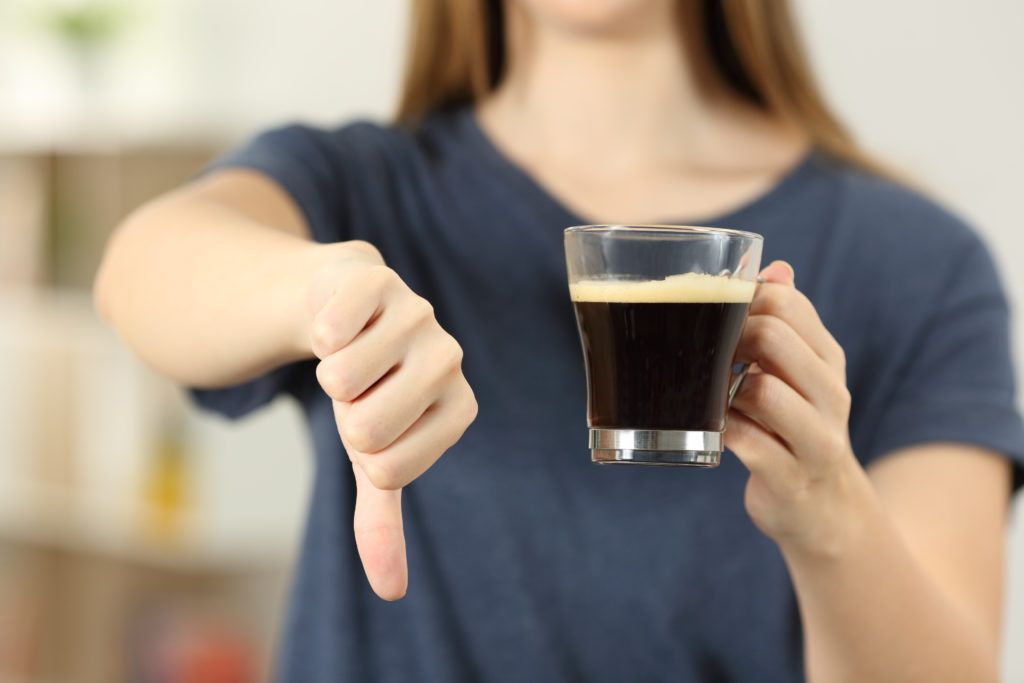Nutri-Strips
Caffeine Energy
Caffeine energy
Caffeine is a much-loved go-to, especially in the form of coffee or cola soft drinks. Many of us wake up in the morning to the smell of coffee being brewed and may start our day with a morning coffee, followed by a cup of coffee or two during our working day. Coffee for some is the fix that gets them through each day, or what they look forward to after a hearty meal.
So, what is caffeine? Does it give us energy? And could it have health benefits or be detrimental for our health?
Read on to find out a little more about caffeine, energy and so much more.
What is caffeine?
Caffeine, as a basic explanation, is plant-based and found in a variety of plants such as coffee beans and guarana seeds. It may act as a mild stimulant that may improve mood and brain function. Those who consume caffeine may tell you it makes them feel alert and less tired throughout their day.
It’s true that caffeine may have a stimulating effect and may help to increase alertness and concentration. In small doses, caffeine may help some to stay alert and decrease drowsiness.
Sources of caffeine
While we’ve mentioned that caffeine may be found in coffee beans and seeds such as guarana, what about how we as humans consume caffeine – where may we find caffeine in our daily existence?
Energy drinks
One caffeinated drink that may often be consumed is energy drinks. An energy drink may contain a fairly high amount of caffeine. Aside from caffeine, energy drinks may also contain sugar, and often potentially sugar in high quantities—as well as other substances such as taurine.
Cola soft drinks
Drinking a fizzy soda is satisfying for some, but be aware that soft drinks may up your caffeine intake. In addition, these caffeinated beverages contain not only caffeine, but also sugar and should therefore be consumed in smaller amounts.
Supplements
Many people consume caffeine on a daily basis, and while caffeine may be found in many products such as caffeinated beverages, adding more caffeine to the diet may be done through supplementation.
SeraLabs Nutri-Strips energY provides a great tasting, sugar free, zero calorie, convenient alternative to coffee, tea, and sugary energy drinks and contains caffeine, Vitamin B6 and Vitamin B12.
Note: Pregnant women should always consult with a doctor or health professional before consuming supplements.
Tea
A cup of tea may have calming and soothing effects on the body. Some believe that a sweet cup of tea may calm the nerves, however, tea may also contain caffeine.
Contrary to popular belief, green tea may also contain traces of caffeine. If you are trying to reduce your caffeine dependency, perhaps try replacing a normal cup of tea with an herbal tea or green tea.
Coffee
Ah, coffee. A favorite for many! Whether it is instant coffee or a delicious pot of brewed coffee beans, a large portion of the world’s population may rely on anything from one to three (or more) cups of coffee per day.
Caffeine intake
There is a saying “all things in moderation” and that may well be applied to caffeine. Many healthy adults are still consuming caffeine in their diet. The key is not to have too much caffeine and monitor your own caffeine tolerance. Each of us is different, and our bodies all handle things differently.
Getting to know your own body may place you in the best position to ensure your overall health.
Caffeine tolerance
Our bodies may be able to ingest and process large amounts of different foods and beverages that contain various vitamins, minerals and nutrients. Caffeine consumption may be no different.
To understand your own caffeine tolerance, you should probably look at factors such as body mass and metabolism, but also be aware of your own body and its responses to caffeine consumption.
If you are sensitive to caffeine intake, you may be more susceptible to the opposite effects and adverse reactions of caffeine, including possibly leading you to feel tired and needing more sleep.
Green tea as opposed to caffeine
While caffeine may be a great mood lifter for some, caffeine intake should be monitored. The symptoms of too much caffeine are varied, and in order to avoid caffeine withdrawal symptoms, you may want to wean yourself off of caffeine.
Green tea is one such beverage you may want to substitute coffee with. While it still contains caffeine, it is usually in a much smaller quantity, and may allow you to slowly reduce your dependency.
Caffeine and energy
Coffee lovers may call this the “buzz” they get from caffeine consumption. The stimulating effect of coffee or caffeine is what may increase energy levels and supply more energy to the body.
Your energy levels may be negatively affected if you become reliant on caffeine, however, and as such you should be careful about your caffeine intake and try not let your caffeine intake negatively affect the health benefits coffee consumption may have for you.
SeraLabs Nutri-Strips energY may be an alternative to coffee, tea and sugary energy drinks, supplying a boost in energy without the annoying jitters. energY is a great addition to the afternoon blahs and won’t keep you awake at night.
SOURCES:
- https://www.hsph.harvard.edu/nutritionsource/caffeine/
- https://www.health.qld.gov.au/news-events/news/coffee-caffeine-energy
- https://www.betterhealth.vic.gov.au/health/healthyliving/caffeine
- https://theenergyblueprint.com/why-does-coffee-make-me-tired/
- https://adrenalfatiguesolution.com/caffeine/

